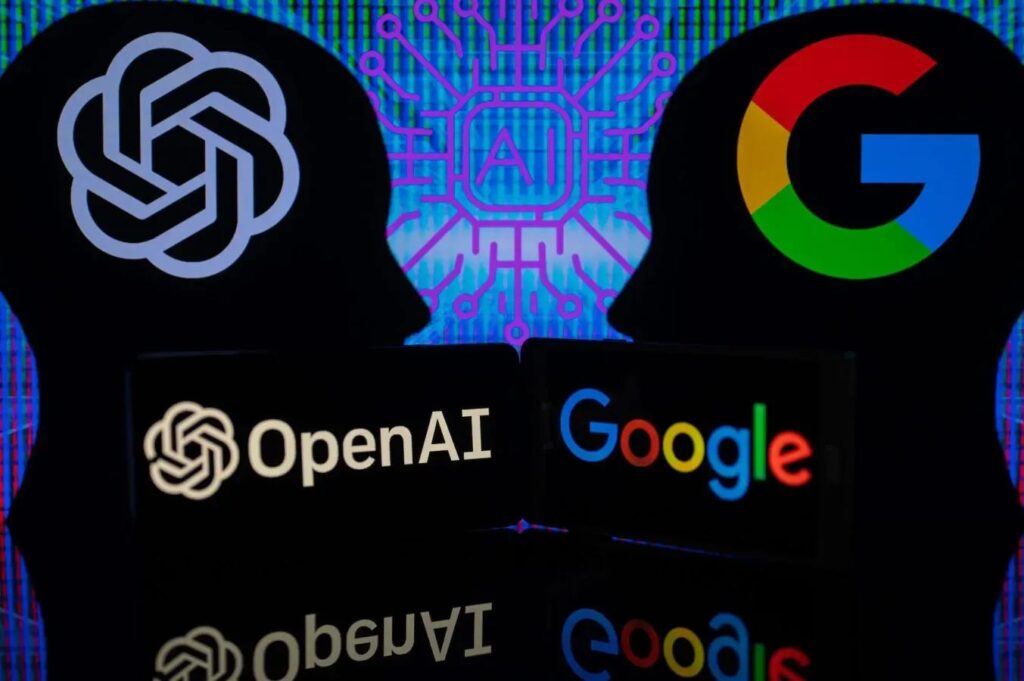
The Potential Impact of Google Bard on ChatGPT: A Deep Dive
The landscape of natural language processing (NLP) and conversational AI has been rapidly evolving, with innovations and advancements transforming the way we interact with machines. One such development that has sparked discussions and debate is the emergence of Google Bard, a new contender in the field of AI language models. This blog aims to explore the potential impact of Google Bard on ChatGPT, delving into the strengths, weaknesses, and possible outcomes of this competition.
The Rise of Google Bard
Google Bard, an ambitious project by tech giant Google, has entered the scene with promises of revolutionizing natural language understanding and generation. This new language model is said to possess enhanced capabilities, surpassing its predecessors in terms of contextual awareness, conversational depth, and overall performance. With Google’s vast resources and expertise, Bard is anticipated to pose a formidable challenge to existing models, including ChatGPT.
ChatGPT: A Brief Overview
Before diving into the potential impact, let’s first understand ChatGPT. Developed by OpenAI, ChatGPT is a language model built on the GPT (Generative Pre-trained Transformer) architecture. It gained popularity for its ability to generate coherent and contextually relevant responses in natural language. The model was trained on diverse datasets, making it a versatile tool for various applications, from chatbots to content creation.
Strengths of Google Bard
1. Google’s Resources and Expertise
One of the primary strengths of Google Bard is the vast pool of resources and expertise that Google brings to the table. With extensive research capabilities, access to diverse datasets, and a track record of developing groundbreaking technologies, Google has the potential to create an AI language model that outperforms its competitors.
2. Advanced Contextual Understanding
Early reports suggest that Google Bard excels in contextual understanding, allowing it to grasp the nuances of a conversation more effectively. This enhanced contextual awareness can lead to more coherent and contextually relevant responses, addressing one of the challenges faced by previous models.
3. Integration with Google Ecosystem
Given Google’s expansive ecosystem, Google Bard is likely to be tightly integrated with various Google services and platforms. This integration could provide users with a seamless and enriched experience, leveraging the power of Google’s extensive suite of applications.
Weaknesses of Google Bard
1. Lack of Openness
One potential weakness of Google Bard is the extent to which it may be a closed system. Google has been known for proprietary technologies, and if Bard follows suit, it may limit accessibility and hinder community-driven innovations that have been crucial for the growth of models like ChatGPT.
2. Ethical Concerns
As with any advanced AI system, ethical considerations come into play. The potential misuse of a highly capable language model like Google Bard could lead to issues related to privacy, misinformation, or even malicious use. Addressing these concerns will be crucial for its responsible deployment.
3. Learning from User Interactions
The effectiveness of any conversational AI model relies heavily on continuous learning from user interactions. If Google Bard faces challenges in adapting and learning quickly from diverse conversations, it may struggle to outperform models like ChatGPT, which have been refined through extensive training on diverse datasets.
Potential Impacts on ChatGPT
1. Competitive Pressure
The introduction of Google Bard undoubtedly creates competitive pressure for existing models like ChatGPT. As organizations and developers evaluate the capabilities of Google Bard, there may be a shift in preference toward the newer model, especially if it demonstrates superior performance.
2. Innovation and Advancements
Competition often fuels innovation, and the rivalry between Google Bard and existing models may drive advancements in the field of conversational AI. OpenAI, the developer of ChatGPT, may respond with updates and improvements to maintain its competitive edge, leading to a positive cycle of innovation.
3. Evolution of ChatGPT
In response to the challenges posed by Google Bard, ChatGPT may undergo further iterations and enhancements. This could involve refining its training data, optimizing algorithms, and incorporating user feedback to ensure continued relevance and effectiveness.
The Coexistence of Models
While the emergence of Google Bard may introduce a new player to the field, it doesn’t necessarily mean the demise of existing models like ChatGPT. In fact, the coexistence of multiple language models is a plausible outcome. Different models may find their niche applications based on specific strengths and use cases.
Conclusion
The potential impact of Google Bard on ChatGPT is a topic of considerable interest and speculation within the AI community. While Google Bard’s strengths, backed by Google’s extensive resources, pose a challenge, ChatGPT has its own merits, including an established user base, a community-driven approach, and ongoing improvements by OpenAI.
The competition between these models is likely to drive innovation and lead to advancements in conversational AI. Developers, businesses, and users will be the ultimate beneficiaries of this competitive landscape as they gain access to increasingly sophisticated and capable language models.
As the field continues to evolve, it will be fascinating to witness how Google Bard, ChatGPT, and other emerging models shape the future of natural language processing and redefine the way we interact with AI-driven conversational agents.





